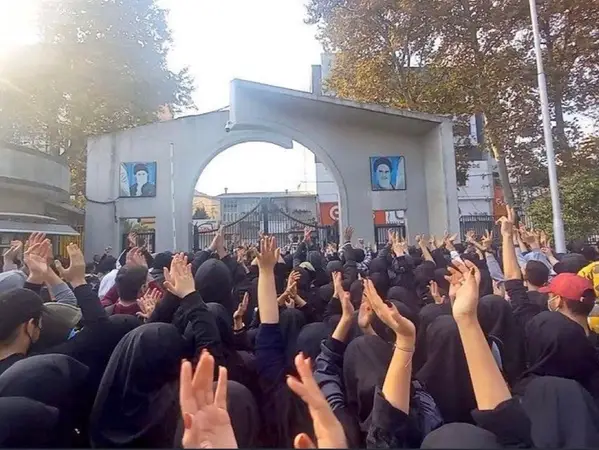A reformist commentator in Iran says the country's silent majority supports the ongoing protests although a majority of the people do not take part actively.
At the same time, the conservative camp appears to be divided over the impact of the protests and the sustainability of changes that have already occurred in Iranian society because of more than two months of nationwide protests.
In a commentary in the reformist daily Etemad, leading reformist commentator Abbas Abdi wrote that although some simple-minded individuals still believe that the protests will come to an end soon, the situation warrants more careful analysis.
Abdi asserted that most of Iranians are not happy about existing conditions and support the protests as without their support the movement would not have started in the first place or would have already ended. He argued that the reason why the majority of Iranians do not actively take part in the protests is because they fear the consequences and do not see a promising prospect for the movement. He said the latter is a more important reason.
"The majority believes there is no guarantee that the movement will succeed so they hesitate in the interest of preserving the status quo although they do not like it. Some protesters, on the other hand, believe that whatever happens in the future cannot be worse than the current situation," Abdi argued. He added that unlike some hardliners who have said there will be hell after the Islamic Republic, this is not true because "the current government is unable to function normally and ensure economic growth, control inflation, boost employment and build houses for the people."
Abdi added that "hardliners hope people will be tired of the situation and will give up. "He maintained that "Iran will never return to the situation before protests started. What has happened is irreversible, so we must go on." He argued that change is the only way forward, but it is with positive steps on the part of the government that a breakthrough could happen. Otherwise, the people might choose open-ended uncertainty."
In the meantime, while moderate conservative politician and commentator Mohammad Mohajeri has said that Iranian women might continue defying hijab no matter what comes up in the future, Hamshahri daily, the mouthpiece of Tehran Municipality and the hardliners who run it, assured likeminded ultra-conservatives that "pious people should rest assured the situation will not remain like this."
Mohajeri noted that "as the problems of [compulsory] hijab and the morality police have remained unresolved, the presence of a large number of women without headscarves has become routine in many cities and this is likely to become the new normal for society." However, he noted that this state of indecision could last longer as the government is used to leaving problems unresolved.
Mohajeri agreed that the problem goes beyond hijab as there is a general dissatisfaction in Iran about the way the country is being governed.
On the other hand, Hamshahri wrote that the way women dress now is not likely to continue in the future, arguing that the protests have not led to more women taking off their headscarves, a claim clearly refuted by photos and videos showing many women without hijab.
Hamshahri added that some women take off their scarf as an act of protest and when the protests are over, rationality will also prevail. But there is a big "if" about the end of protests. With three days of more rigorous strikes and protests until Friday, and further plans for next week, the prospect Hamshahri envisages seems to be wishful thinking.
